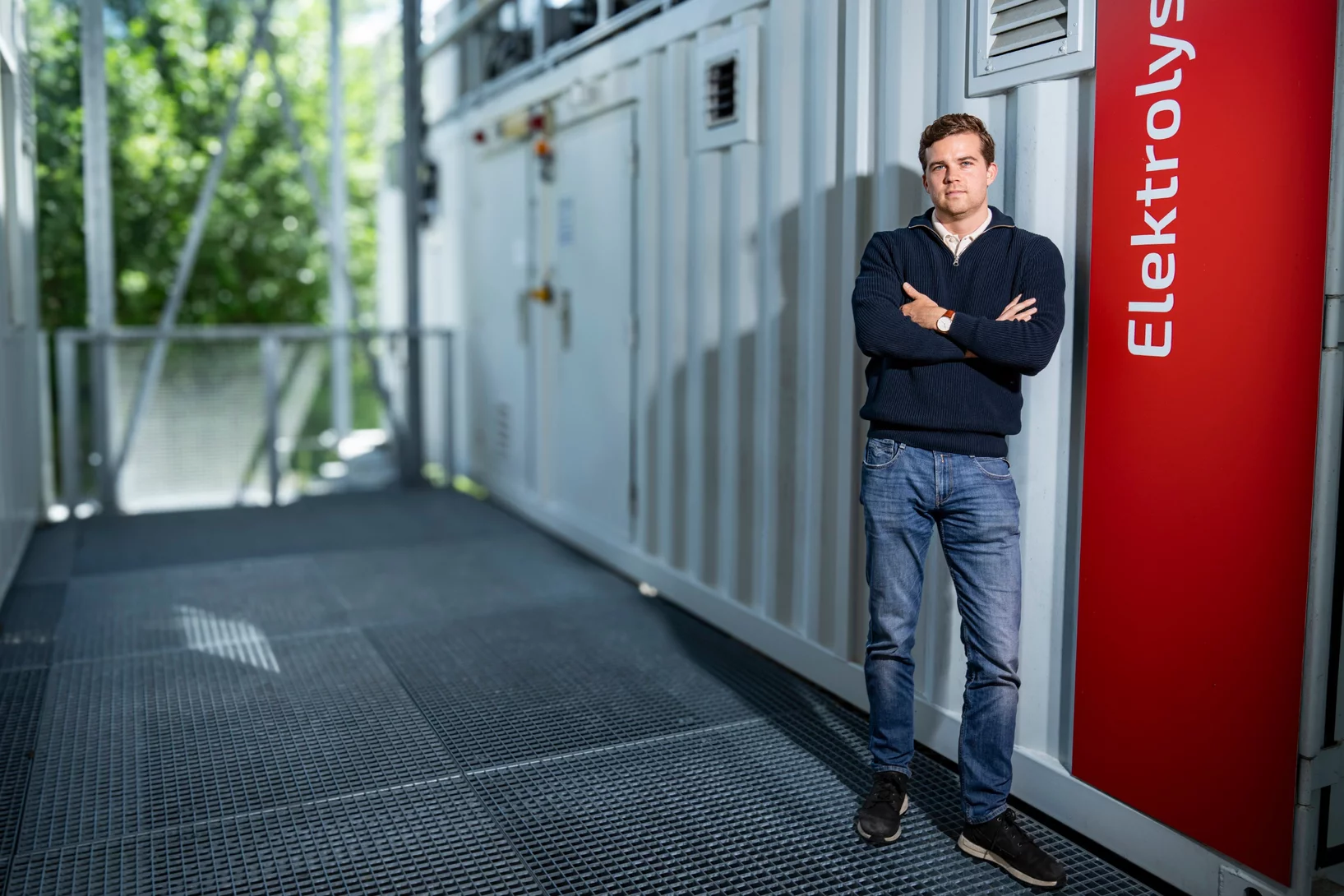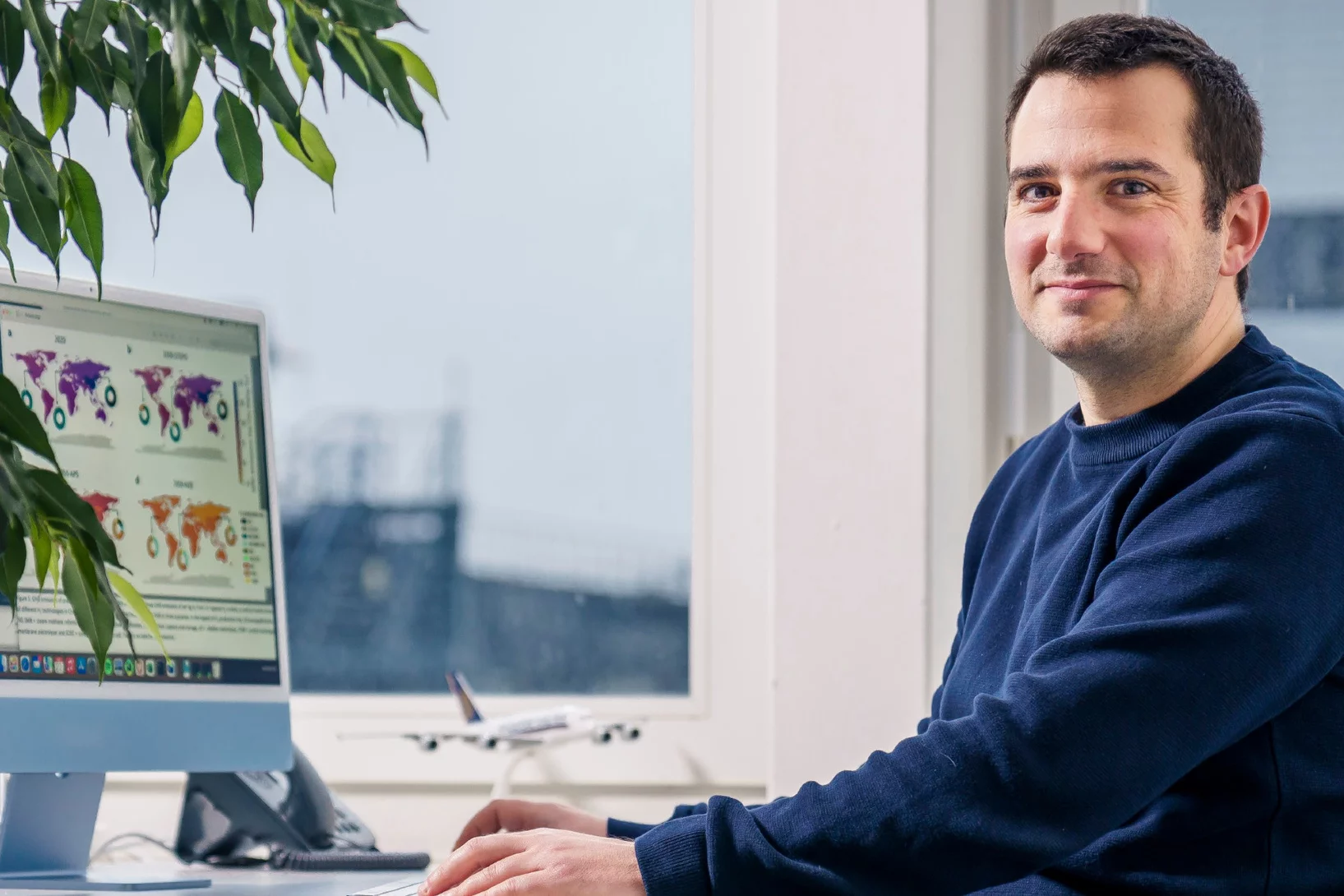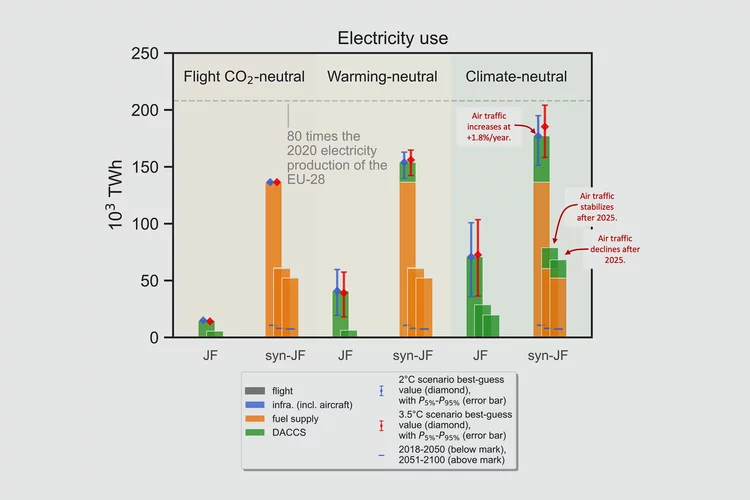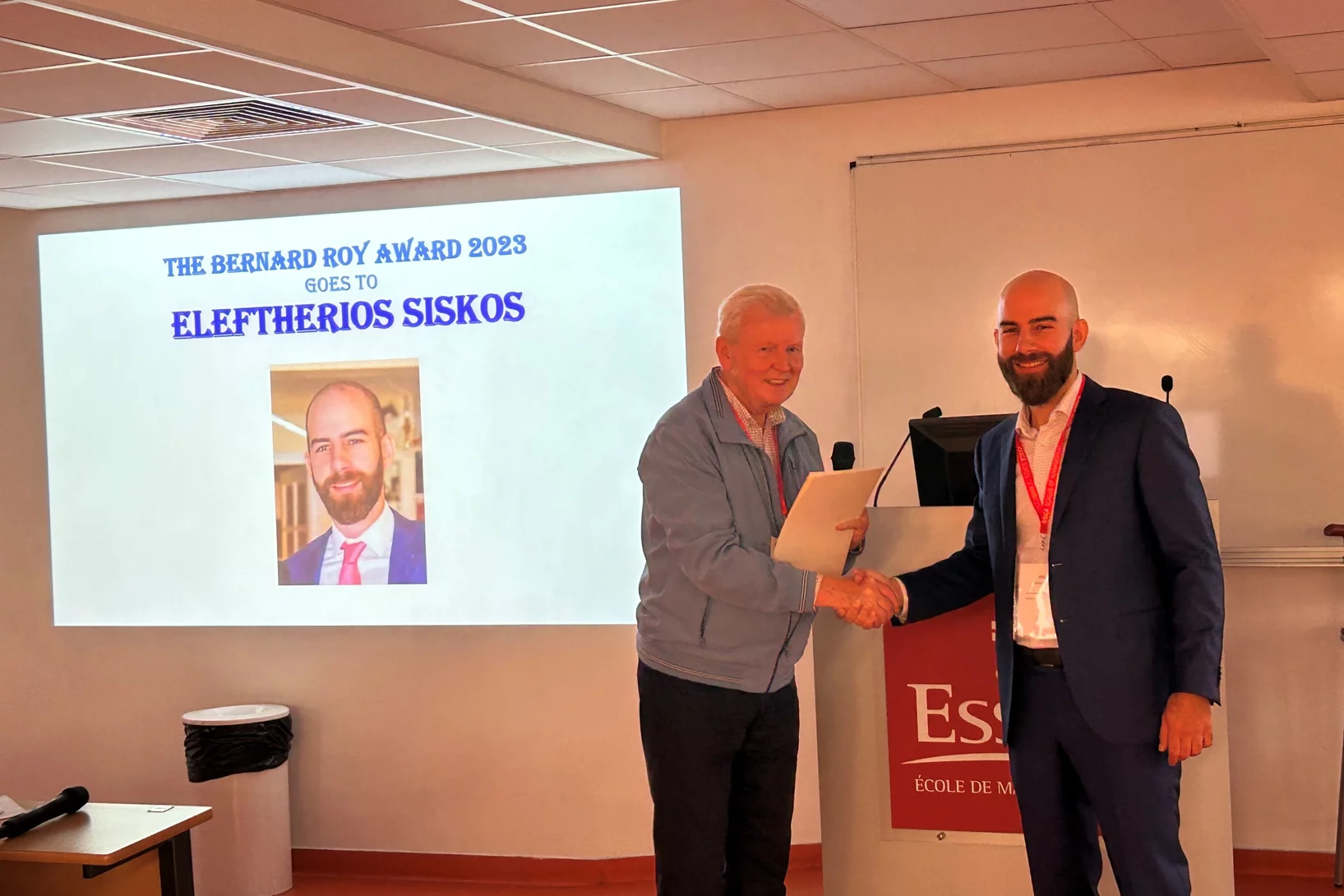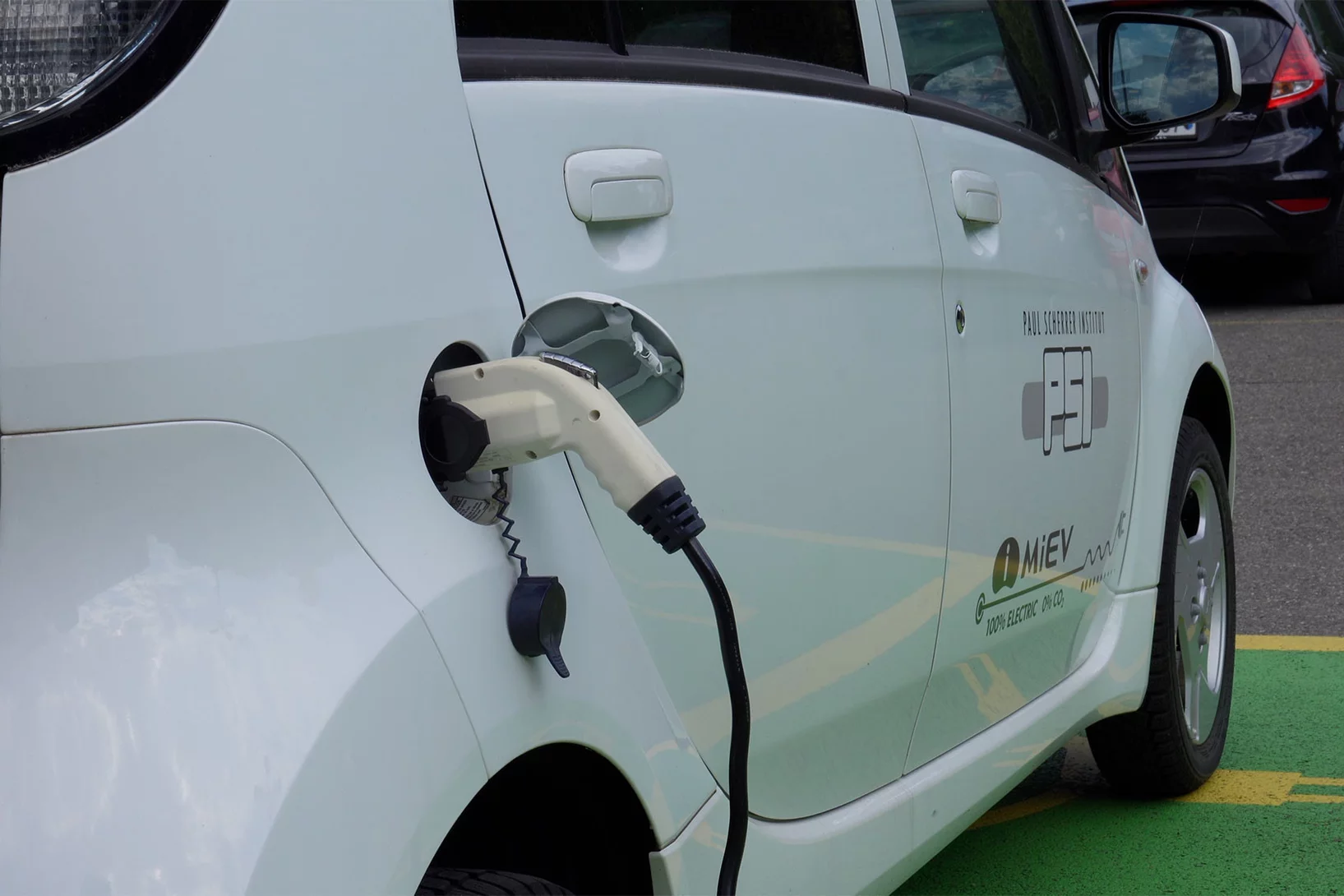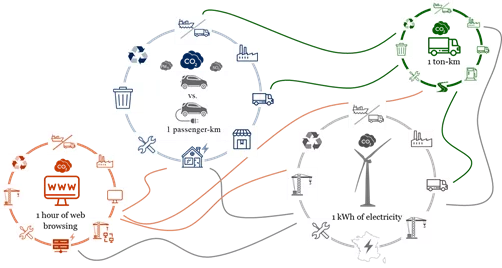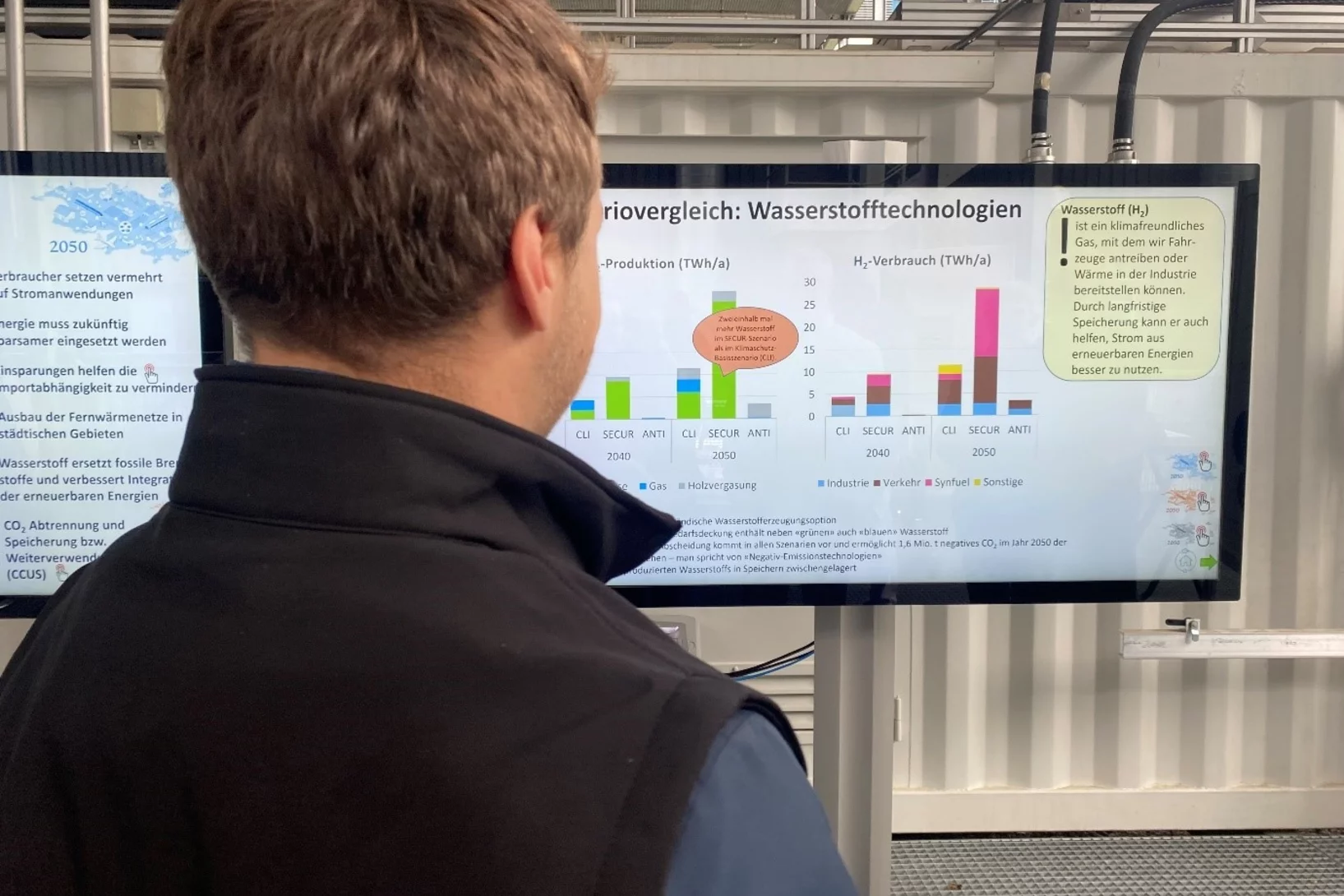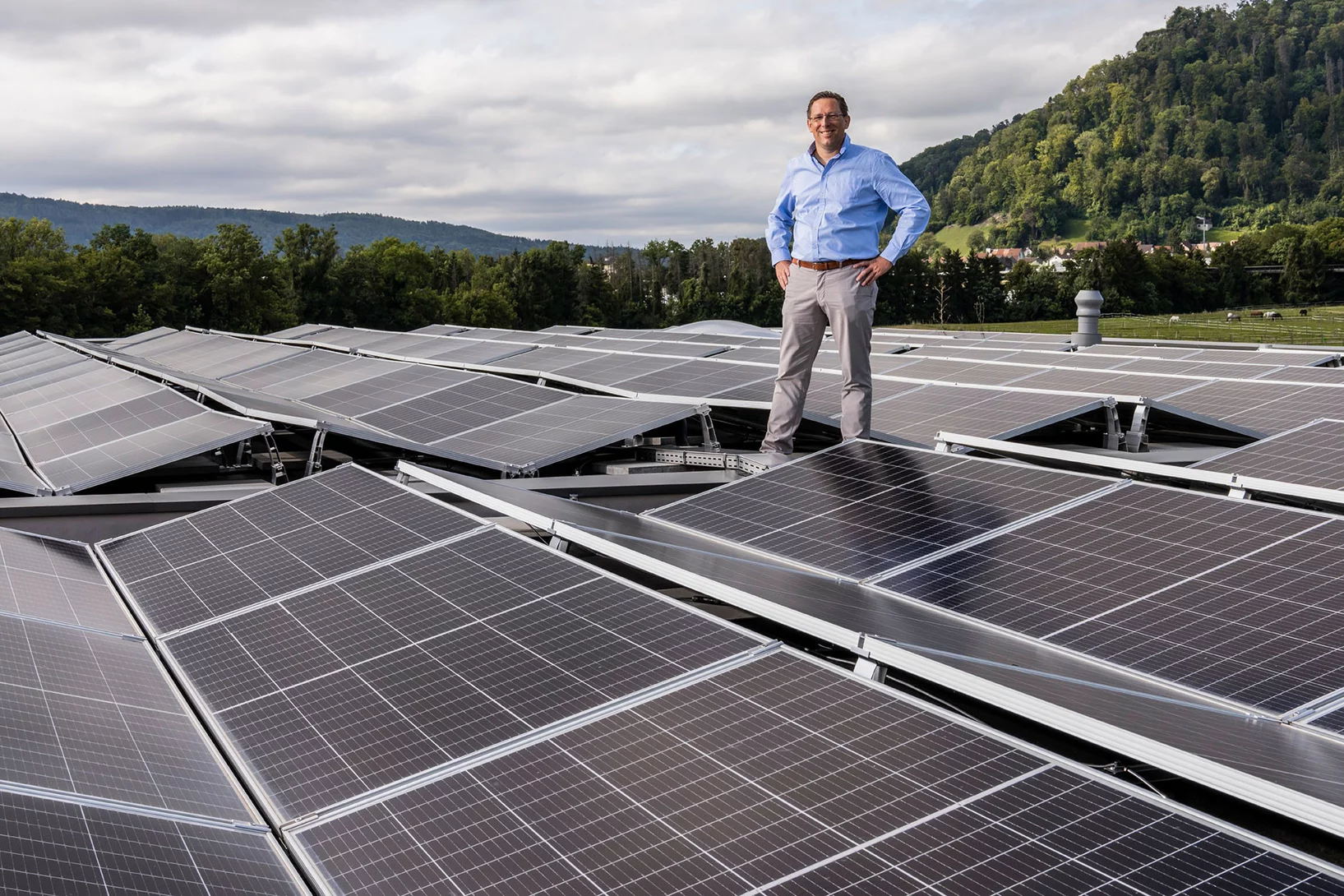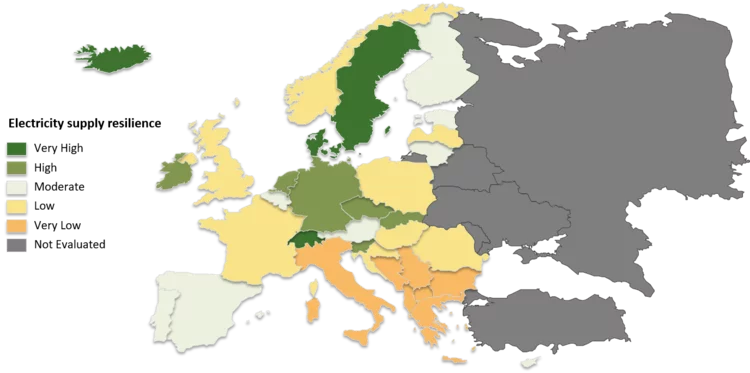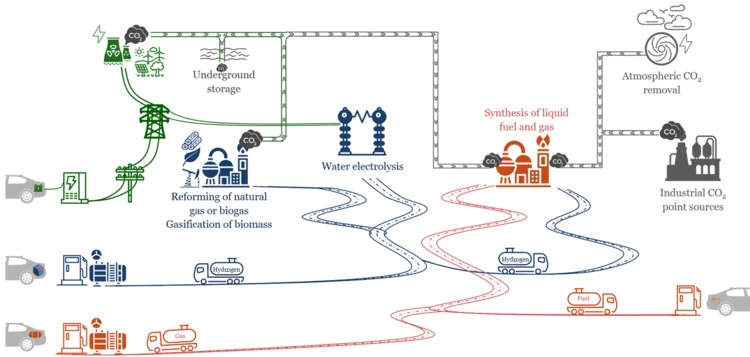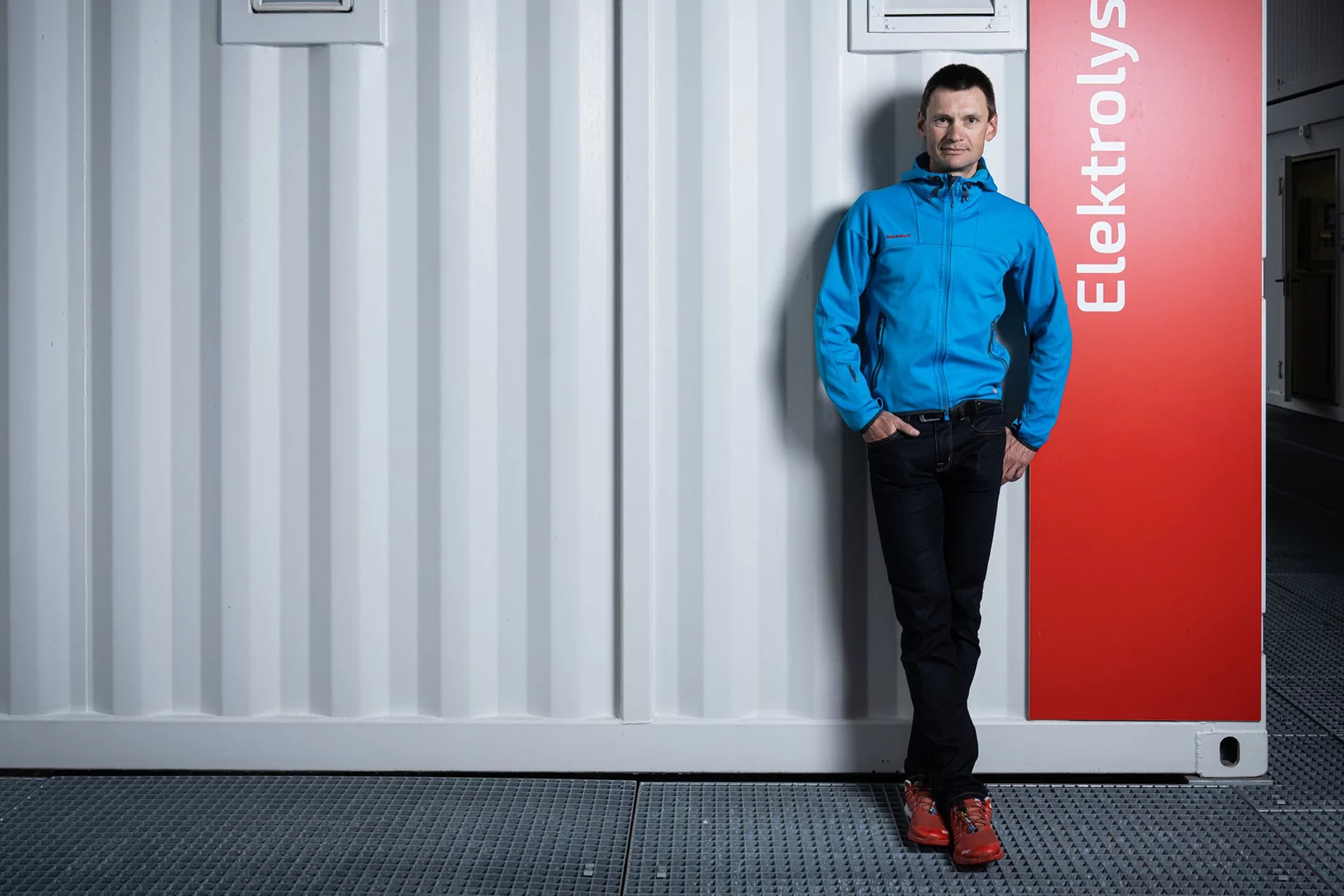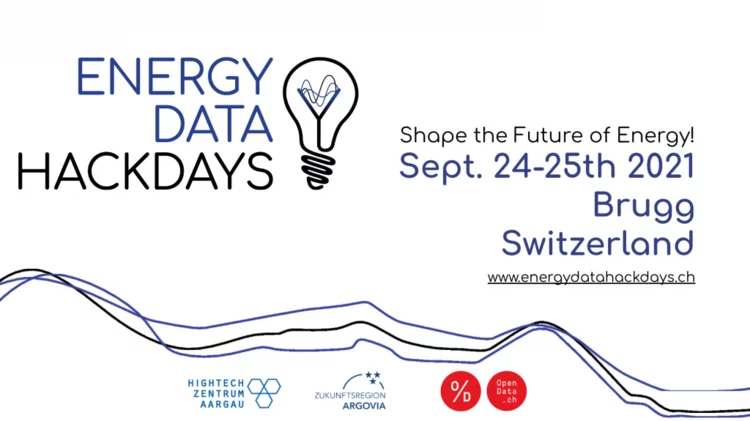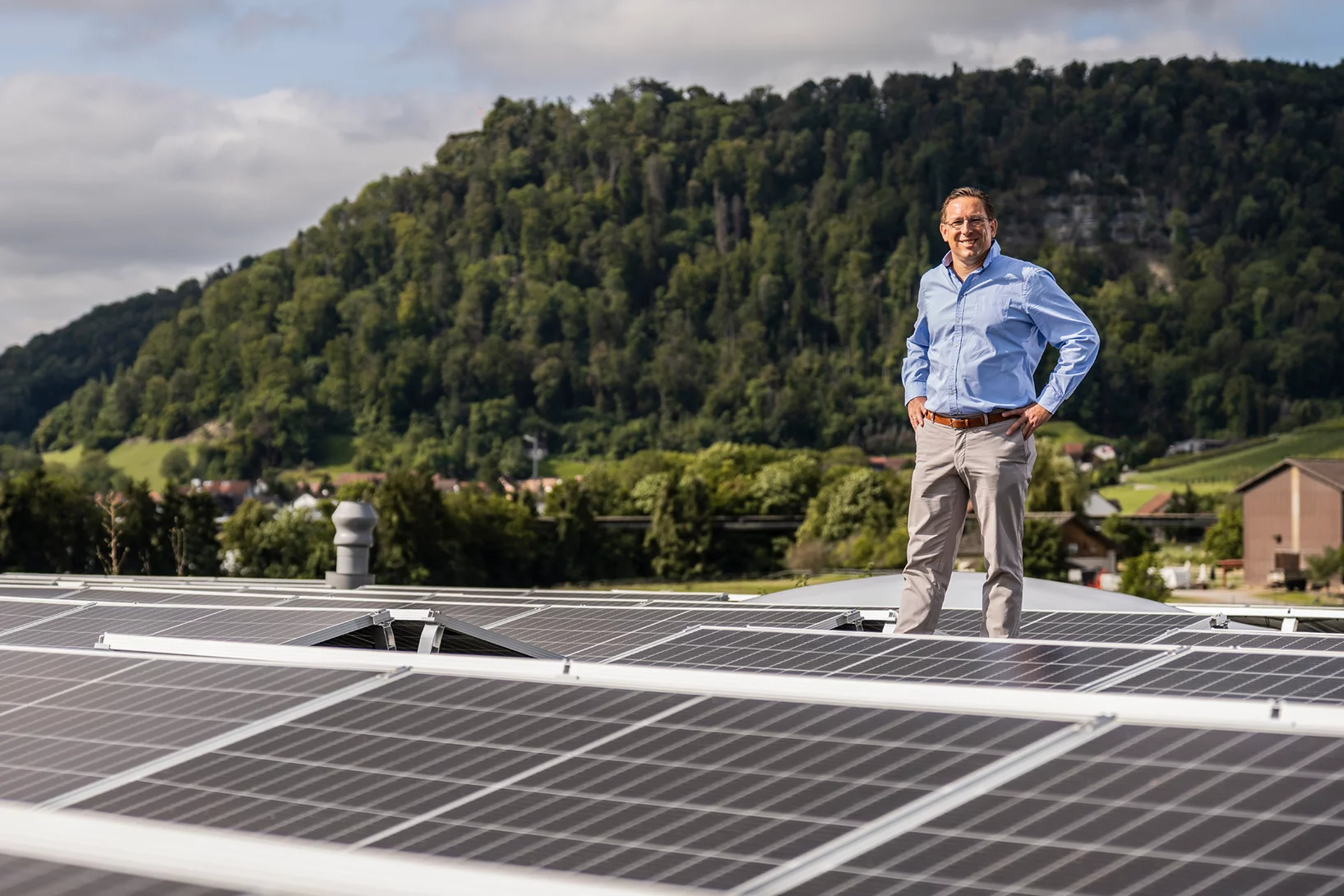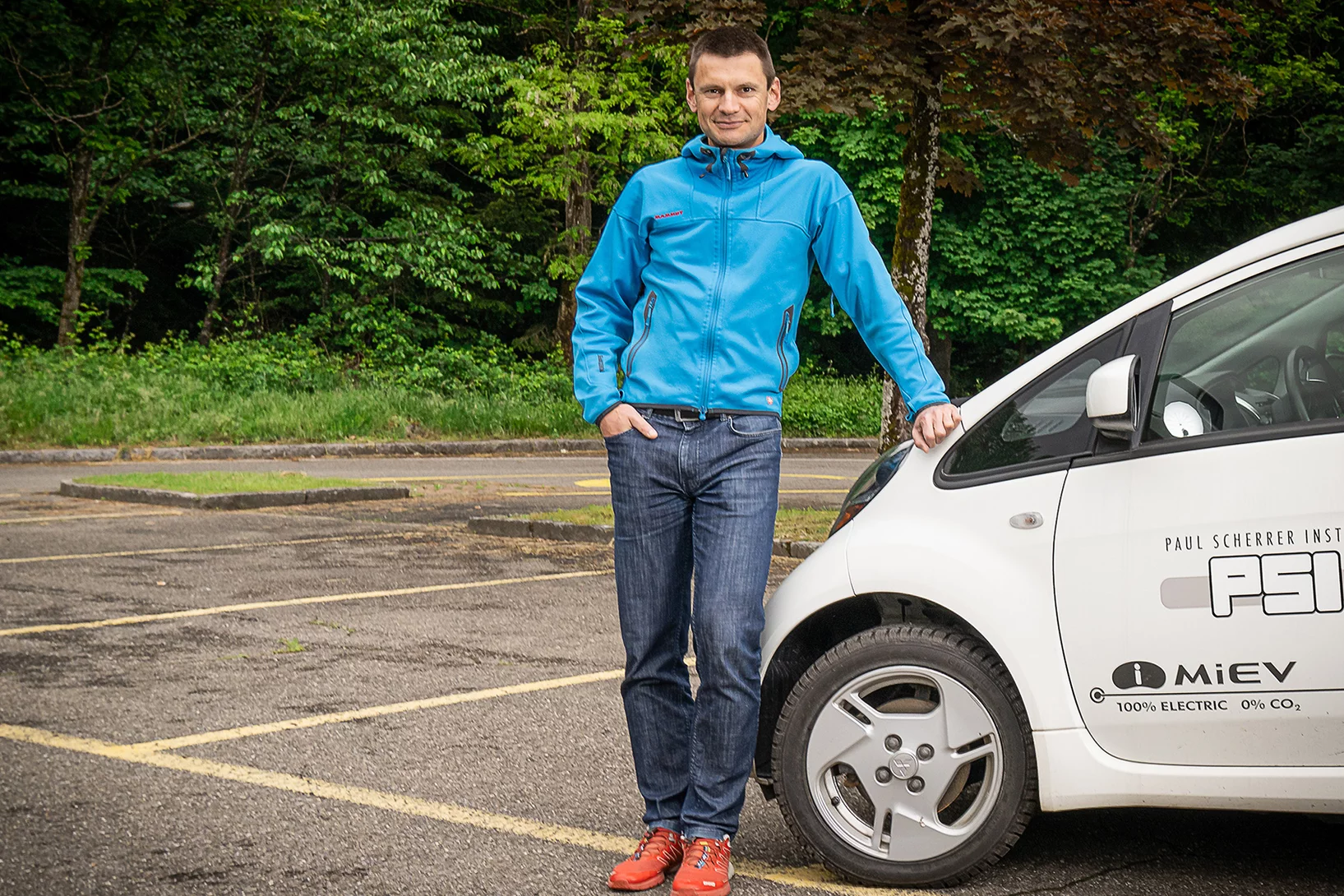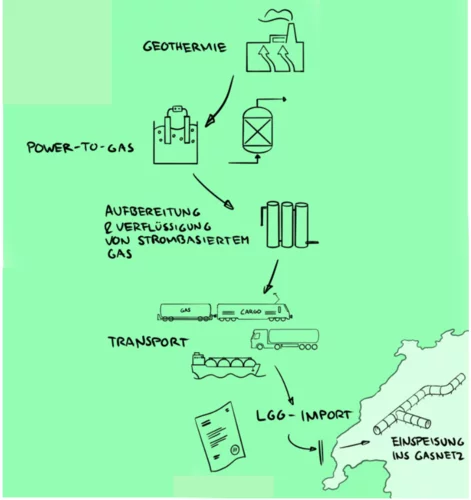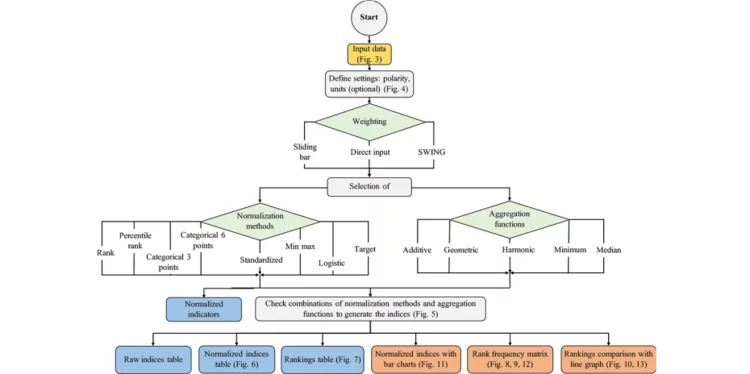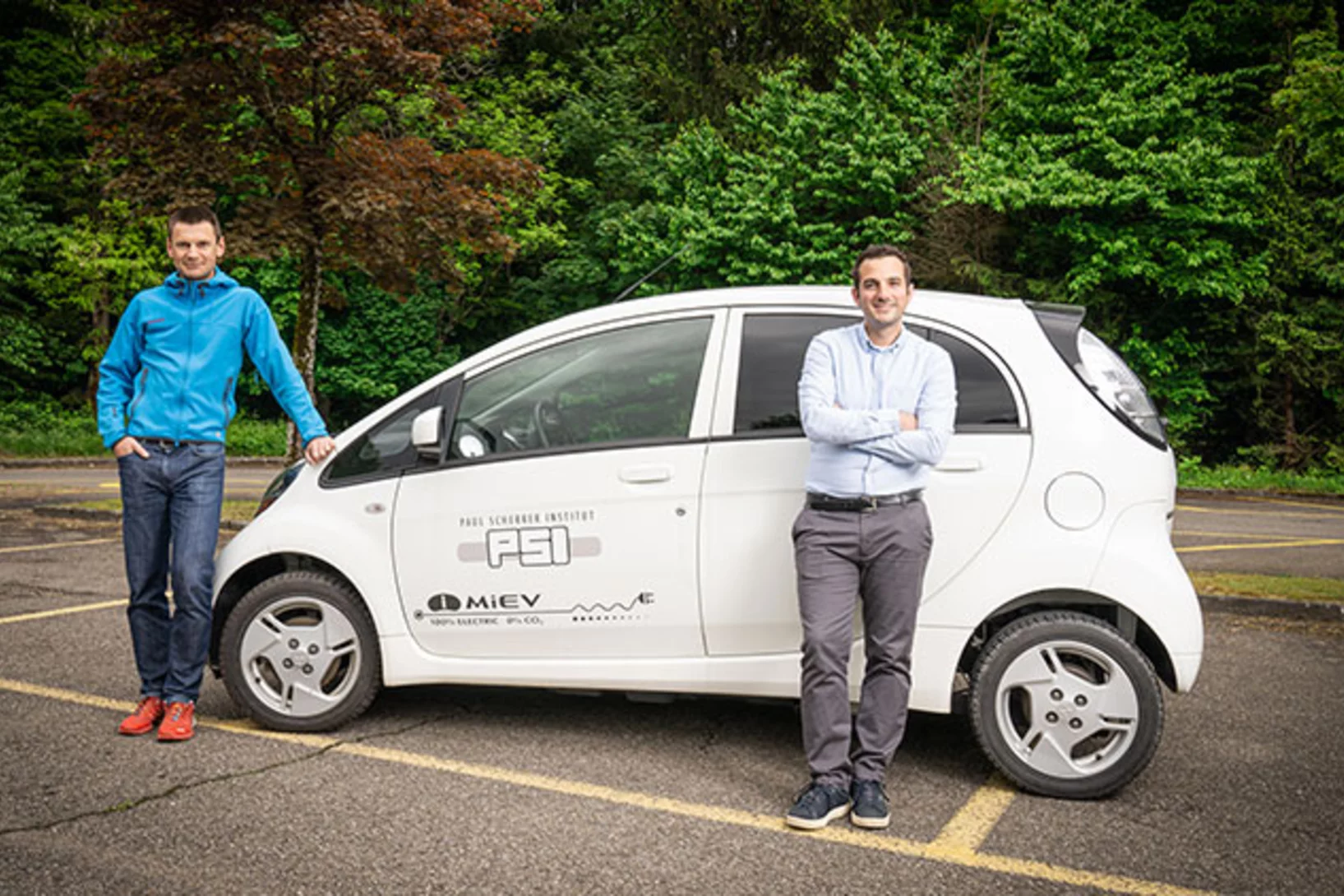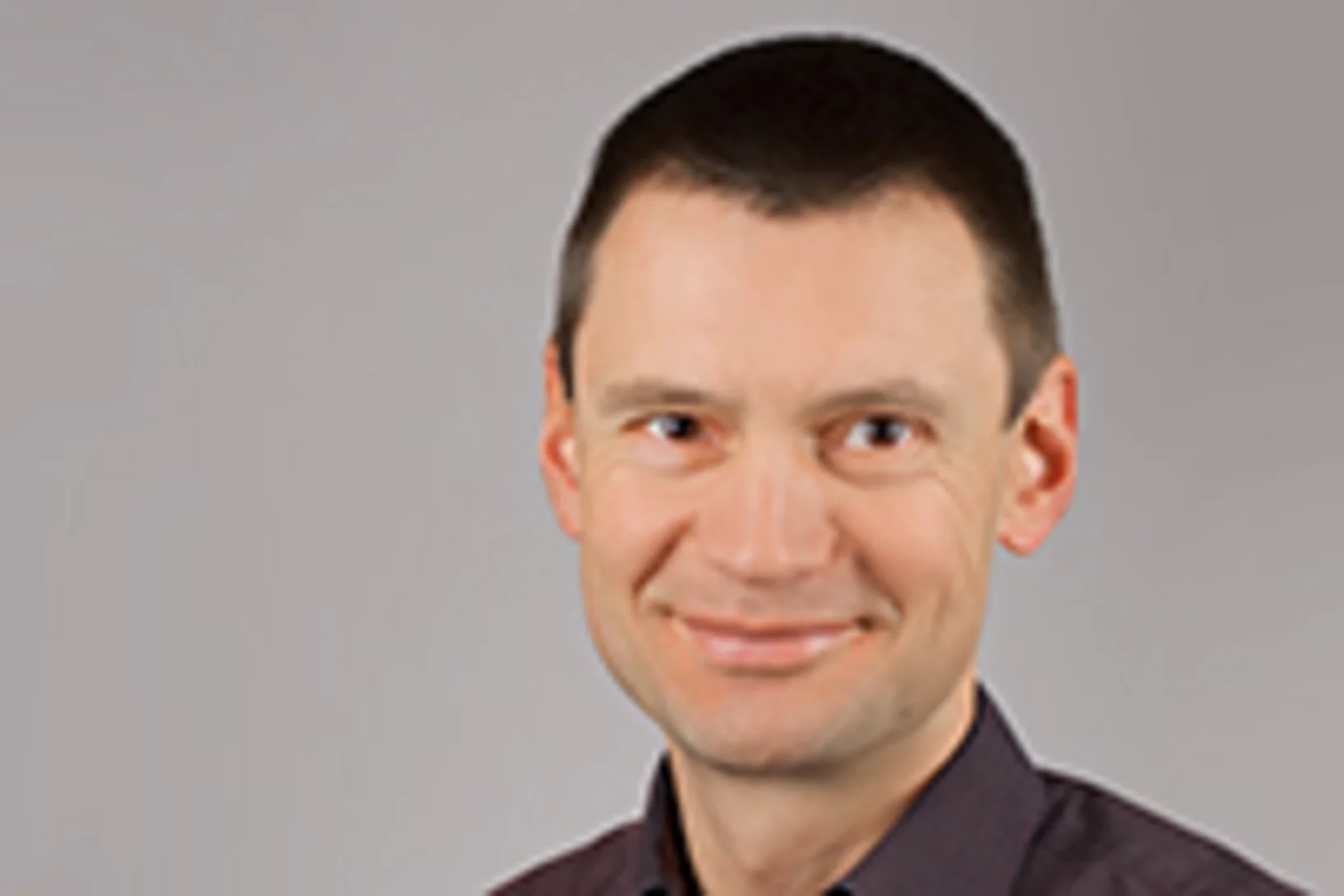A complex promise
There’s more to climate-neutral aviation than just reducing emissions during flights. A PSI study analyses what is needed to achieve this long-term goal.
Fast as a plane, clean as a train
In a collaboration across Switzerland, researchers have evaluated the potential environmental impacts of so-called hyperloop systems.
Where should hydrogen be produced in the future?
Researchers at PSI have been looking into where the hydrogen for a future hydrogen economy should be produced and what impact this energy carrier will have on the environment.
How clean is hydrogen for the energy transition?
Hydrogen can play a crucial role in transitioning to a net-zero energy system – but it must be produced the right way.
Climate-neutral aviation: will it fly?
The European aviation sector stands at a pivotal juncture in its quest to achieve net-zero climate impacts. Focusing on flight CO2 emissions overlooks up to 80% of the sector's climate repercussions.
Our research delves deep into the role of electricity-based synthetic jet fuels and direct air carbon capture and storage (DACCS) as potential game-changers. These solutions promise climate-neutral aviation, but there's a catch: the relentless rise in air traffic. Relying solely on renewables-derived synthetic fuels may strain both economic and natural resources. On the flip side, offsetting fossil jet fuel impacts via DACCS poses its own set of challenges. Our findings underscore one clear message: for a genuinely climate-neutral European aviation, we must reconsider the scale of air traffic.
Dr. Eleftherios Siskos is the recipient of the Bernard Roy Award 2023
Dr. Eleftherios Siskos has received the prestigious Bernard Roy Award 2023 by the European Working Group (EWG) on Multiple Criteria Decision Aiding (MCDA).
How can cobalt be reduced in EV batteries?
The electrification of transport is increasing. This means, more batteries are needed. However, some of these batteries contain an extremely problematic raw material: cobalt. PSI is researching alternatives.
Climate-neutral air travel: Is it possible?
Above all, meeting this goal will require sustainable fuels and a reduction in air traffic.
Latest Version of "Mobiltool" Released
How do you get from A to B in the most environmentally friendly way? This question can now be answered quite easily with the latest version of the "mobitool". Read the article to learn more.
Our Group at the PSI Open Doors Event 2022: Discovering Energy Systems Modelling and Sustainability
On Sunday, 23rd of October, the Paul Scherrer Institute opened its doors and invited the public to explore and experience the manyfold topics which are researched at PSI. The Laboratory for Energy Systems Analysis was present at two stations. Read the article to learn more.
Preparing for energy shortages and blackouts
Peter Burgherr is a risk researcher at PSI. In this interview he talks about possible power shortages in the coming winter and how to prepare for them.
Evaluation of European electricity supply resilience
The increasing risk of extended electricity supply disruptions and severe electricity price fluctuations strongly motivate an evaluation of electricity supply resilience. In this direction, this research proposes a multicriteria decision support framework to assess resilience at a country level, based on three major dimensions: Resist, Restabilize and Recover. In total, 35 European countries are ranked according to their performance on 17 indicators, through a synergy of MCDA methods, techniques and communication protocols. The assessment framework has been extended to incorporate the Choquet Integral method, in order to accommodate potentially interacting pairs of criteria and negate their arbitrary effects on the final evaluation results. The analysis incorporates country data from credible international databases, as well as the preference information of a European energy expert. The results are envisaged to support energy policymakers in Europe and provide guidelines and areas for improvement at a country level.
E-fuels and electrification as complementary approaches to achieve climate target
Sustainable, synthetic fuels, so-called e-fuels, can help reduce CO₂ emissions. For their production, electricity from renewable sources is required in order to allow for a close to CO₂-neutral balance. The availability of electricity from renewable sources, which ensures the climate benefits of e-fuels, is currently still limited. “Especially in order to produce on a larger scale, a lot of renewable electricity is needed,” explains Christian Bauer, researcher at the Laboratory for Energy Systems Analysis (LEA) at PSI.
Blue hydrogen can help protect the climate
The key is to eliminate methane leaks.
Challenge at the Energy Data Hackdays 2021
Chris Mutel, a scientist at PSI's Laboratory for Energy Systems Analysis who specialises in life cycle and sustainability analyses, prepared a challenge for the Energy Data Hackdays happening on the 24th and 25th of September 2021 in Brugg
Where will the electricity come from in 2050?
Net-zero goal for CO2 emissions is technically achievable.
Effectively removing CO2 from the atmosphere
With careful planning, effective CO2 capture is technically possible.
Christian Bauer interviewed on Electric Cars at the program Einstein by SRF
Christian Bauer, a scientist at PSI's Laboratory for Energy Systems Analysis who specialises in life cycle and sustainability analyses, interviewed at the program Einstein by SRF on Electric Cars
Christian Bauer interviewed on Electric Cars at the program Treffpunkt by SRF
SRF interviewed Christian Bauer, a scientist at PSI's Laboratory for Energy Systems Analysis who specialises in life cycle and sustainability analyses, on Electric Cars
Final Report of the IMPEGA project
The final report of the IMPEGA project has been released!
SCCER Mobility White Paper
New SCCER Mobility white paper on "Pathways to a net zero CO2 Swiss mobility system" is now online!
SWEET Program, Research challenge 4: Sustainability at the heart of a resilient Swiss energy system
The results have been announced of the first call for proposals in the new energy research programme SWEET (Swiss Energy Research for the Energy Transition). An international panel of experts has awarded the contract to four consortia. The host institutions of these research consortia are ETHZ, EPFL, the University of Geneva and the PSI. Over the next six to eight years, they will work on their research tasks in trans- and interdisciplinary projects.
Christian Bauer interviewed on Electric Mobility at the Kassensturz program by SRF
SRF interviewed Christian Bauer, a scientist at PSI's Laboratory for Energy Systems Analysis who specialises in life cycle and sustainability analyses, on Electric Mobility at the program Kassensturz
TCS Switzerland Passenger Cars platform extended with Life Cycle Carbon footprint from PSI-TA
TCS Switzerland has extended its passenger car search and comparison platform by adding the life cycle carbon footprint quantified by PSI-TA.
Seven years SCCER Mobility
Synthesis book reviews history, milestones and achievements of the center
Sustainability Assessment of Potential Areas for Deep Geothermal Energy Systems in Switzerland
In this study, scientists from the Paul Scherrer Institute (PSI) assessed the suitability of potential areas for Deep Geothermal Energy (DGE) systems in Switzerland with regard to their sustainability.
Atelier deliverable nr. D9.1 Draft released
Draft of the Deliverable nr. D9.1 on "Repository of Definitions of terms, key characteristics archetypes and a set of KPIS" for the H2020 Atelier project
A tool to build and assess indices
Researchers from the Future Resilient Systems programme present a multiple criteria decision analysis (MCDA) software that supports the dynamic shaping and evaluation of indices.
Life cycle assessment of cars – new web tool helps consumers and researchers
Decision support for car buyers: Researchers at the Paul Scherrer Institute have developed a web tool called the Carculator that can be used to compare the environmental performance of passenger cars in detail.
"Electric is already the right choice today"
An interview on automotive power systems with Christian Bauer, a scientist at PSI's Laboratory for Energy Systems Analysis who specialises in life cycle and sustainability analyses.



